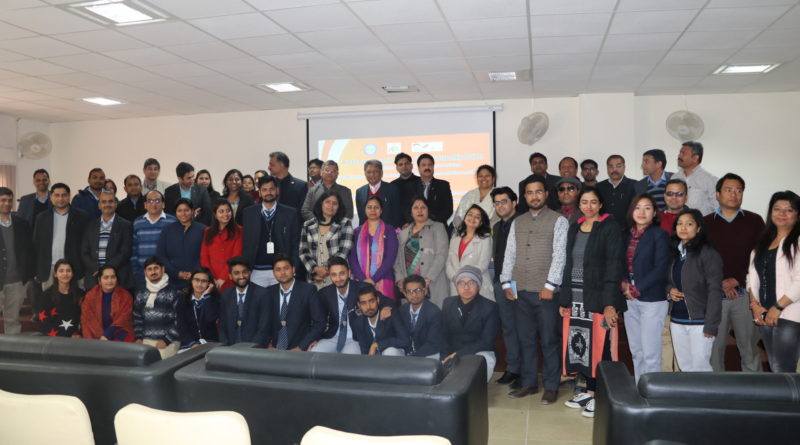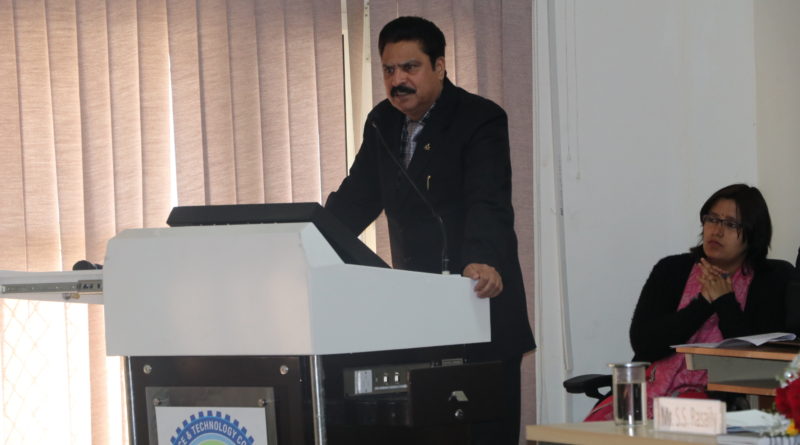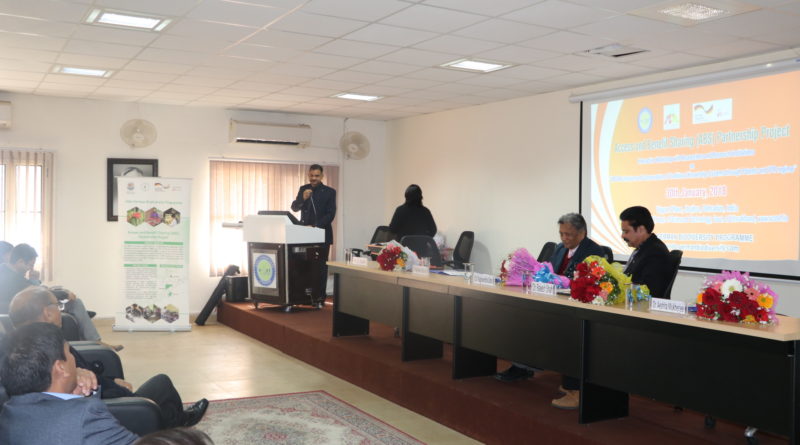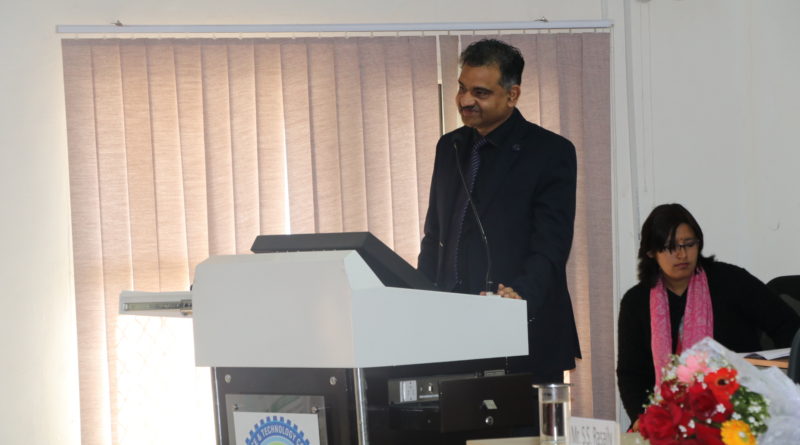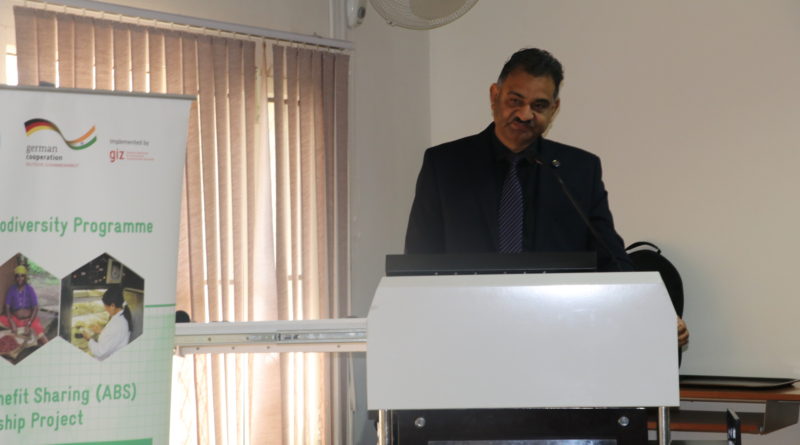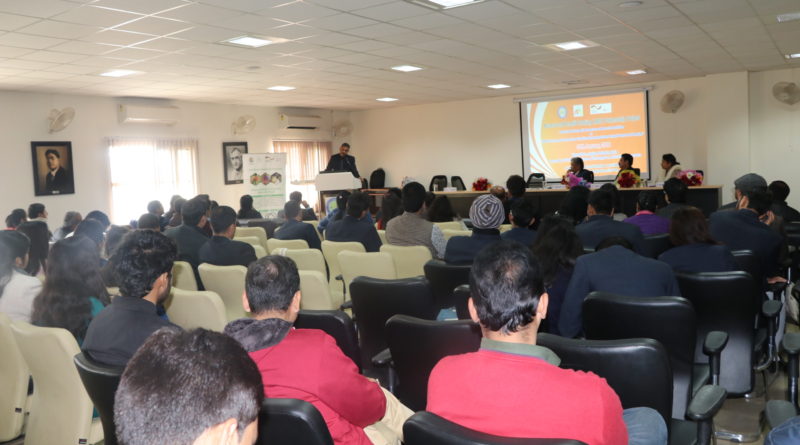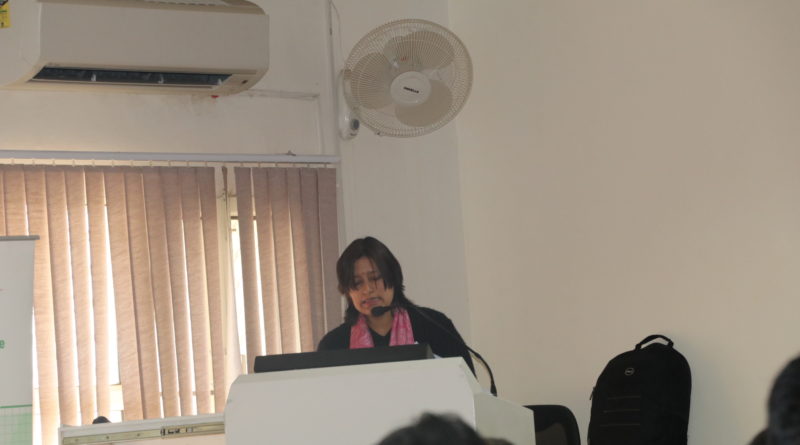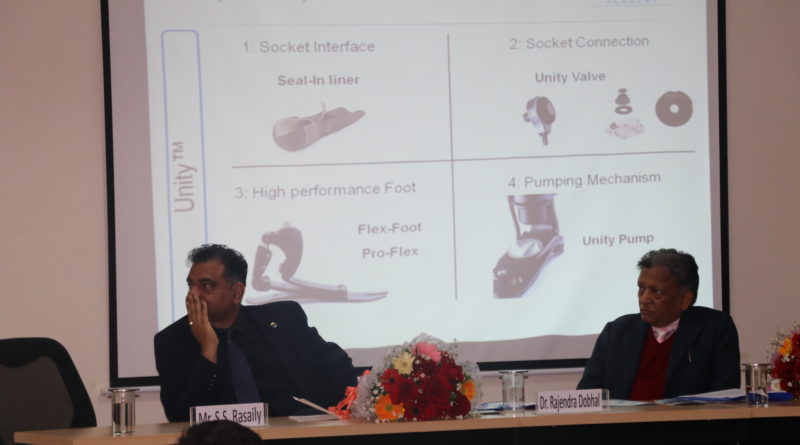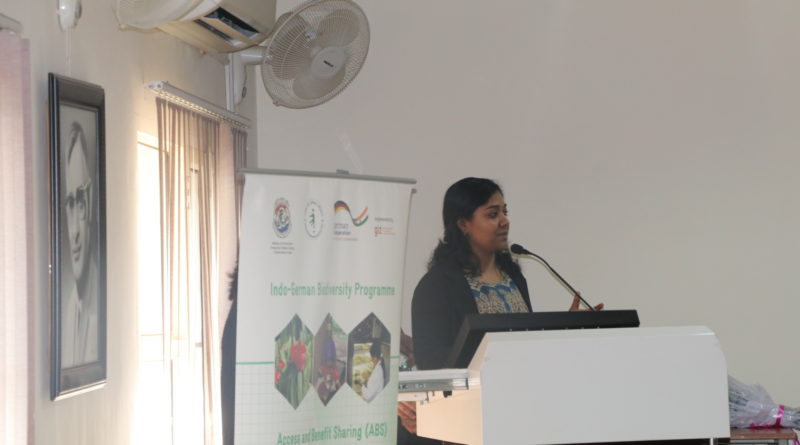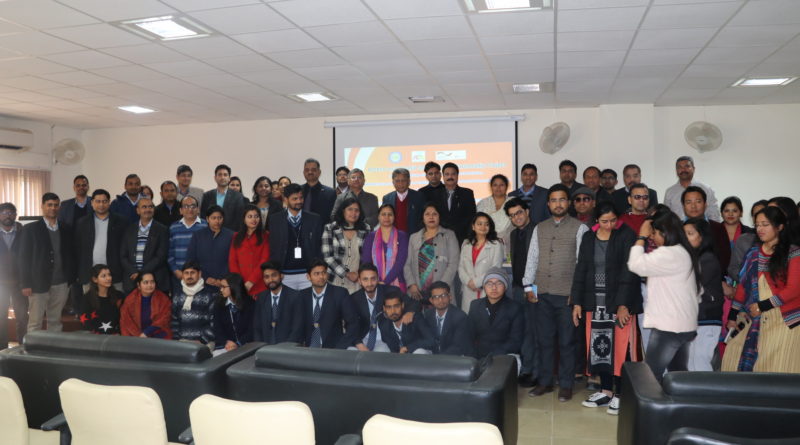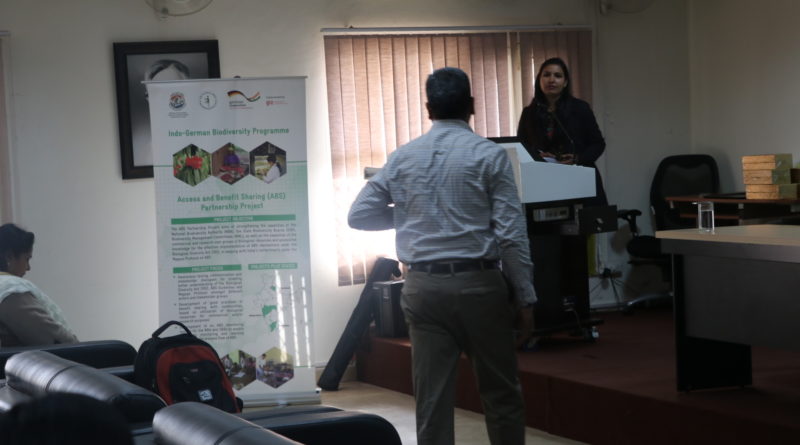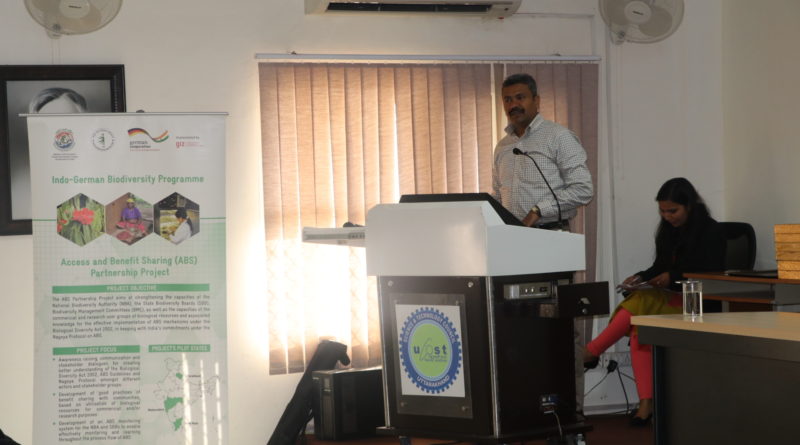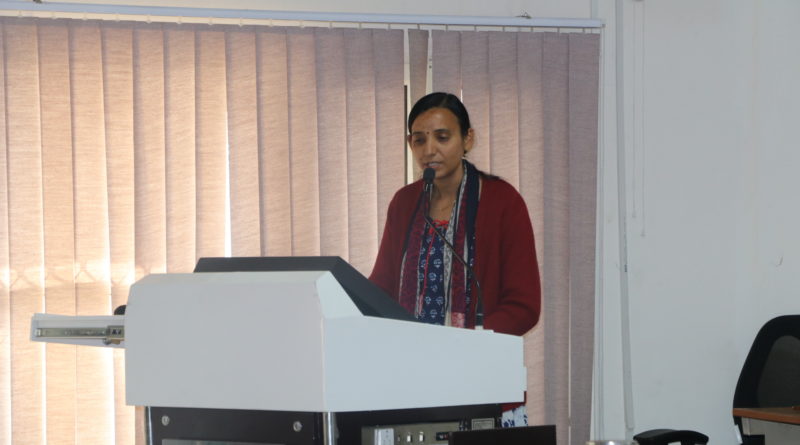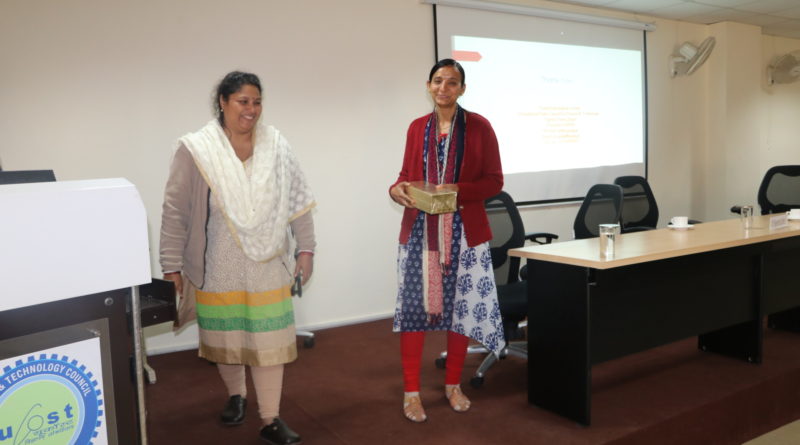Workshop on “ABS mechanism and conservation of traditional knowledge systems through patents and IPR regime” 30 January, 2018, VIgyanDham, Jhajhra
ABS mechanism and conservation of traditional knowledge systems – Uttarakhand State council for science and Technology (UCOST) in collaboration with Deutsche Gesellschaftfür InternationaleZusammenarbeit (GIZ) GmbH and State Biodiversity Board, Uttarakhand is organizing a one day interactive workshop on Access and benefit sharing mechanism and conservation of traditional knowledge systems through patents and IPR regime. The workshop aims to sensitize the researchers and scientists involved in research associated with the biological resources of India, about obligations of researchers and research institutions in the Biological Diversity Act, 2002 with particular reference to access to biological resources and benefit sharing arising out of their use, patents and other related IPR.
Dr. Aeshita Mukherjee from GIZ said in the theme presentation that, the ABS partnership started in 2016, which supports the Indian government in conservation of the country’s rich biological heritage. The project is implemented in 3 states Maharashtra, Tamilnadu and Uttarakhand with the support at the centre through National Biodiversity Authority. She emphasized on benefits of ABS mechanism and Patents/IPR issues to the people of the state. Chairman of State biodiversity Board Dr.Rakesh Shah alongwith Director General UCOST, Dr.RajendraDobhal, Dr. R Saha advisor DST, and Mr. SS Rasaily inaugurated the workshop. On this occasion Dr. Shah said that we must conserve and sustain our natural resources through ABS.Mr.Rasaily said that the traditional knowledge systems needs to be identified and conserved through proper interventions and use of Biodiversity Act. Dr.Dobhal in his speech emphasized on needs of scientists and researchers in patenting and IPR issues under the Biodiversity Act, 2002.He also discussed clauses of conservation of biodiversity Act, bio piracy and oral witnessing. At the end of his address Dr.Dobhal posed a question of why to maintain patent applications which have no industrial applications.
Dr. R Saha (Ex director TIFAC DST GoI), interacted with the participants on process and mechanism of patents/IPR/certification, narrating his insight on handling the issues at Government of India level. He talked about many patent cases like the popular turmeric and neem patents controversy. While finishing his address he expressed his concern over proprietorship of bio diverse resources and different aspects of IPR field.
The experts and elites from different IPR sectors like Dr.RK Ravikumar from National Innovation Foundation, Ms. SunitaTripathy from Jindal Global University and Dr.AnjuRawat from UCOST spoke at length on Patents, IPR, GI and certification vis-à-vis section 6 of BD Act and form 3 for filing applications through State Bio biodiversity Board.
In this occasion Academicians, Researchers and Scientists from different institutions such as vice chancellor of Doon UniversityDr. S.C. Nautiyal,Dr. Vijay shridhar also from doon university, Dr.kumarambarish and Dr. B. S. koliyafrom Botanical survey of India,Dr.Bholanath from Doon medical college, Dr.gulshandhingra from Pt. L.M.S. government medical college participated in this event. Mr. L M Kaul, Mr.Dhananjay Prasad, Mr.ArvindUniyal and team were present from the Biodiversity Board. Mr. Anil Joshi and Dr. Peerzada Ishtiyak (Technical Experts from GIZ), Technical Support Institutions like National Innovation Foundation were also present in the discussions.
